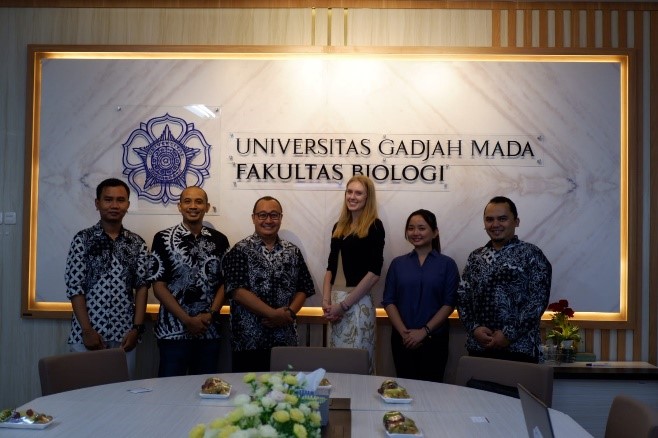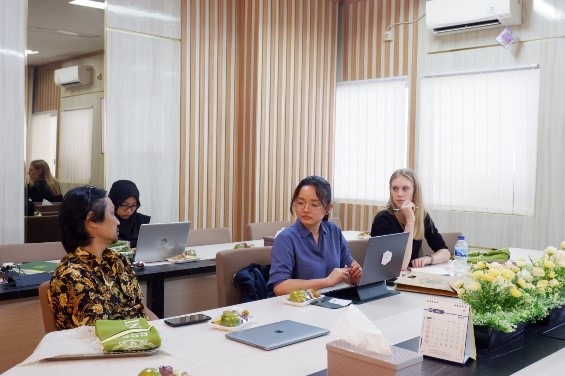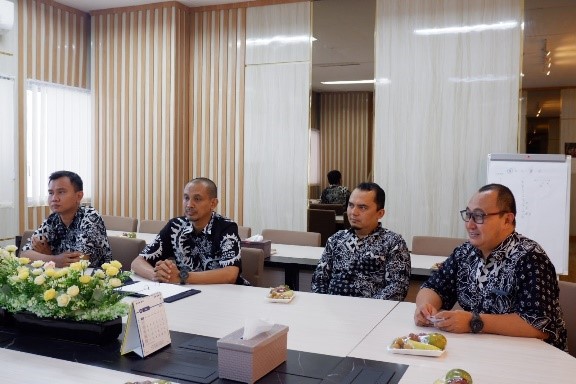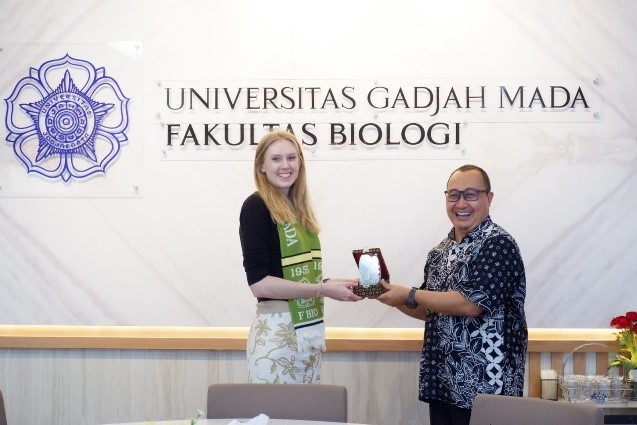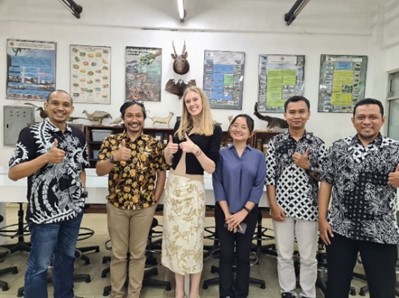The United Nations Office on Drugs and Crimes (UNODC) through UNODC’s Global Program on Crimes that Affect the Environment in collaboration with TRACE Wildlife Forensics Network will conduct an analysis for Wildlife Forensics where the team invites Laos, Indonesia and Malaysia to assess forensic capacity in the area. The results will be used to support the improvement of Wildlife forensic capabilities and the improvement of these wildlife forensic services. On Monday, 17 July 2023, at the KPTU Meeting Room of Faculty of Biology UGM, UNODC and TRACE representatives visited Faculty of Biology UGM to discuss condition and potential for Wildlife Forensics in Indonesia. The meeting was attended by Vice Dean of Faculty of Biology UGM for Research, Community Service, Cooperation, and Alumni Affairs, Dr. Eko Agus Suyono, M.App.Sc., Head of Office of International Affairs, Faculty of Biology UGM, Dr.rer.nat. Abdul Rahman Siregar, S.Si., M.Biotech, and Lecturer from the Animal Systematics Laboratory, Donan Satria Yudha, S.Si., M.Sc., and Dr. Dwi Sendi Priyono, S.Si., Kelly Morgan as TRACE Manager for Southeast Asia Program, Amanda Lightson as UNODC Technical Officer in Sabah, Malaysia, and Dwi W. Adhiasto, Consultant for Wildlife Conservation and Criminal Justice.
The meeting began with an opening and a brief introduction to the Faculty of Biology by the Vice Dean for Research, Community Service, Cooperation, and Alumni Affairs. The introduction is about history, facilities, and focus of education at Faculty of Biology UGM.
The meeting was then followed by a presentation by Donan Satria Yudha, S.Si., M.Sc. which explains Wildlife Forensics, especially Anatomy and Forensic Morphology. The Faculty of Biology has an Animal Systematics Laboratory and a Biology Museum which has collections of vertebrate fauna skeletons that can be used to support forensic anatomy and morphology. Not only skeletons, but also taxidermy collections of various vertebrate fauna species. He also explained activities related to Wildlife Forensics that have been carried out including Capacity Building such as Integrated Training on Handling Wildlife Circulation in the Maluku Islands, Training and Technical Guidance for Collection and Preservation of Anatomical and Morphological Samples for Research. The Capacity Building involved various parties from the Regional Police and Local Resorts. District Court and the Attorney General’s Office, to institutions that support conservation. He has also been involved and collaborated with the Police several times regarding the identification of protected wild animals including Jakarta National Police’s Criminal Investigation Unit, Central Java Regional Police’s Criminal Investigation Directorate and the Bantul District Prosecutor’s Office, to become an expert witness in trials at the Bantul District Court regarding wildlife trade.
Next, Dr. Dwi Sendi Priyono explained Wildlife Forensics especially for Wildlife DNA Forensics. Capacity Building related to collection techniques and preservation of confiscated samples for DNA analysis which was attended by forest rangers, NGOs and various related institutions. The training was conducted so that staff in the field have the ability to handle confiscated samples in the field before they are sent to the laboratory. This aims to minimize contamination and degradation of DNA material. Dr. Sendi also explained that many confiscated components had been identified based on their Forensics DNA. He worked closely with the Police to identify samples in the form of animal bones, tails, fingers and nails. Dr. Sendi also explained the problems of field staff who had difficulty identifying species which could lead to misidentification, so a guide was made to minimize the misidentification errors. Another problem is the limited tools such as PCR in the Animal Systematics laboratory for identification of DNA samples so that the investigation and identification process cannot be carried out quickly. This tool is an important part because forensic needs are very immediate, confidential, and minimal contamination, and there is no standard animal identification protocol.
After the discussion and presentation, representatives from TRACE and UNODC visited the Animal Systematics Laboratory at the Faculty of Biology to see the skeletal coccyx and taxidermy of the vertebrate fauna there.
This meeting is an opportunity for good cooperation between Faculty of Biology and UNODC and related institutions that focus on wildlife conservation and forensics. It is hoped that this meeting will be useful for the development of Wildlife Forensics in Indonesia.

